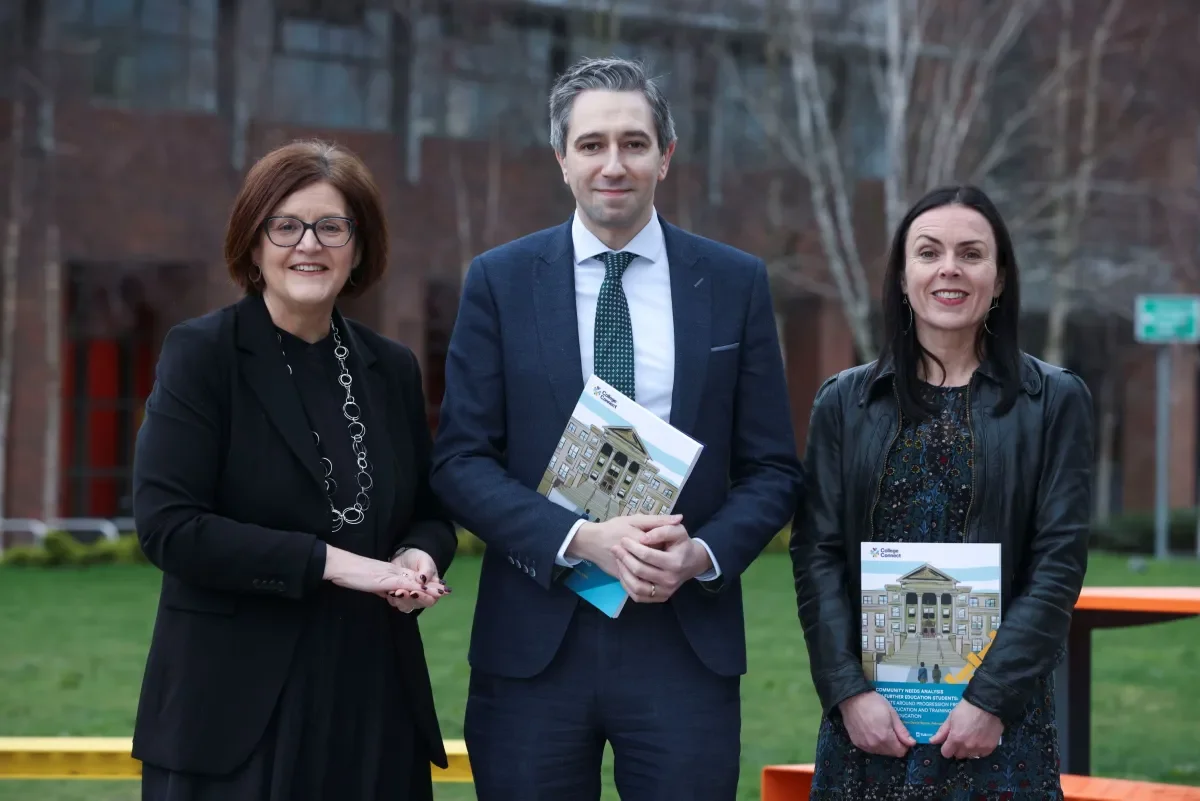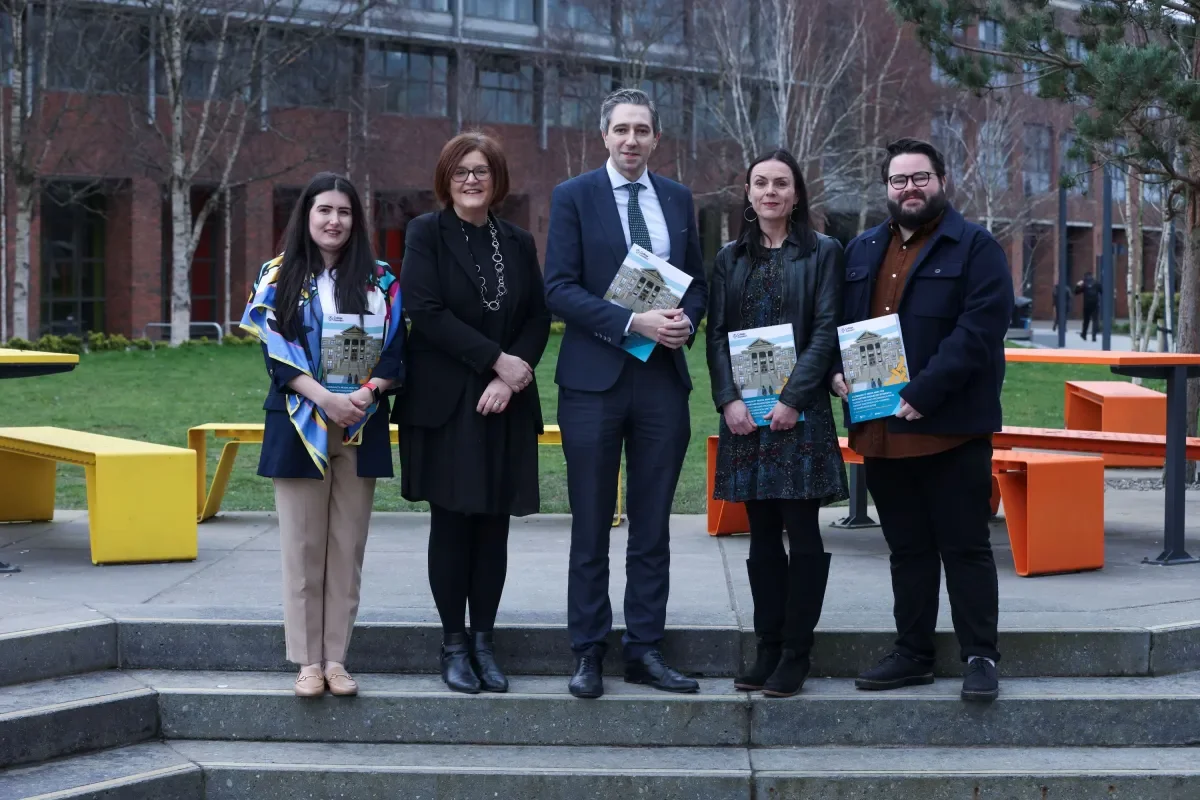

New Research Finds Further Education Students Face Many Barriers in Progression to Higher Education
College Connect launch new research ‘A Community Needs Analysis with Further Education Students – Thoughts Around Progression from Further Education and Training to Higher Education. The research was launched by Minister Simon Harris, Minister for Further and Higher Education, Research, Innovation and Science (DFHERIS) and Minister for Justice at Dublin City University.
Dr Sarah Sartori, College Connect Research Manager and author of the report said:
“Minister Harris’s message regarding a unified tertiary sector, that will see the joining of further and higher education through degree programmes, speaks to many of the research recommendations in terms of ‘parity of esteem’ between FE and HE, clearer pathways, and the smooth transition for FE students. The research also calls for consideration for additional funding streams for FE students, given that finance is still the biggest barrier to progression, particularly for lone parents and those with care responsibilities etc.
The research, A Community Needs Analysis with Further Education Students, reveals that further education students still face many barriers when progressing from Further Education to Higher Education. Participants reported structural, institutional, and social barriers such as socio-economic background, with the financial barriers of juggling with work, family and care responsibilities being the most significant obstacles to pursuing Higher Education, including the cost of fees, accommodation, transportation, food, books, childcare, and many other associated costs. This is despite most of them believing in the benefits of progression to higher education. Further education students also expressed a fear of not fitting in, in a middle-class institution and a fear of failing their courses or dropping out of Higher Education.
Executive Dean of DCU Institute of Education, Prof Anne Looney, said:
“DCU has worked consistently with Further Education institutions and other partners to increase access and pathways to Higher Education for FE learners. This has resulted in more than 60 advanced entry arrangements linking FE programmes directly with DCU undergraduate degrees. It is clear from this research, however, that learners face a complex set of additional pressures and barriers that prevent them from advancing to Higher Education. DCU welcomes the report’s recommendations and is committed to collaborating with our College Connect on actions and solutions to make the transition to Higher Education more attainable and attractive.”

In addition, the research found that further education students reported a generally positive experience of further education describing their FET experience as empowering and giving them a sense of accomplishment, despite the negative stigma of FET, with students praising the diversity, peer support, adult education models, class sizes, and work placement experiences from their FET journey. The findings are supplemented and supported by an arts-based publication in the form of a comic zine drawn from initial analysis of the interview transcripts, and illustrated by comic artist Dominique Ng, a graduate from Ballyfermot College of Further Education. The study findings include ten recommendations that could address the barriers and ‘discouragers’ identified in participants' accounts and through literature and policy analysis.
Peer-Researchers on the project, Sarah McManus and Josh Golding said:
“Working on this project gave us the opportunity to amplify the voice and acknowledge the strengths of the further education learner. As peer-researchers we were tasked with designing and delivering the focus group sessions. It was important for us that these sessions would reflect an adult learning environment, so we used discussion, imagination, and illustration. Any research of an underrepresented cohort is important but what is significant with this report is that it shines a light on many who reflect the richness of diversity.”
This research was carried out by the College Connect project, which is led by Maynooth University in partnership with DCU, Technological University of the Shannon (Athlone Campus) and Dundalk Institute of Technology and funded by the Higher Education Authority under Strand 3 of the Programme for Access to Higher Education (PATH 3). The research was led by the College Connect Research Manager Dr Sarah Sartori and co-authored with Dilara Demir Bloom, in collaboration with Dublin City University (DCU). The peer research study engaged with 58 students in seven Further Education Colleges in the Dublin/DCU catchment area to gather views and insights on the factors encouraging or discouraging the transition from further to higher education.
College Connect is a regional access programme which aims to enhance educational aspirations and opportunities for the most socio-economically disadvantaged people in the Midlands, East, North Dublin (MEND) region. College Connect is developing an important evidence base to inform educational policy and the targeting of supports for marginalised communities seeking to access higher education in Ireland. As part of its work, College Connect is developing an important evidence base to inform educational policy and the targeting of support for marginalised communities seeking to access higher education in Ireland.
